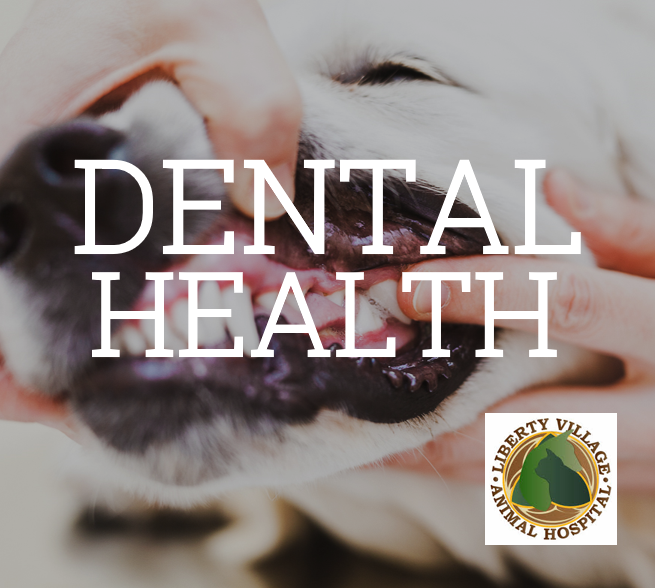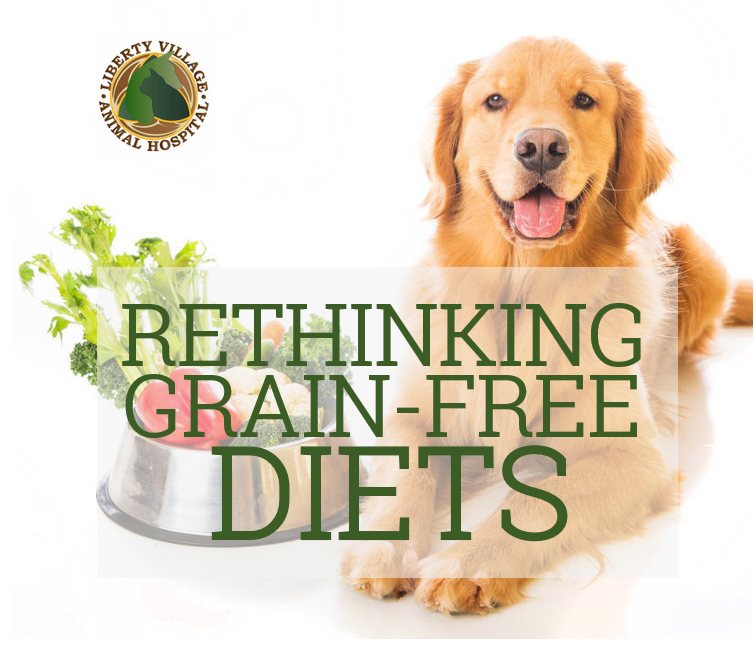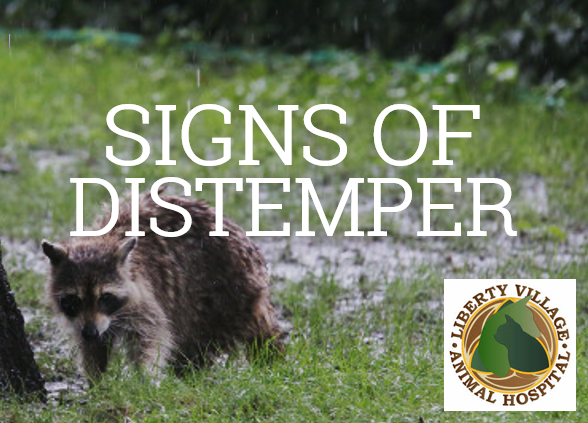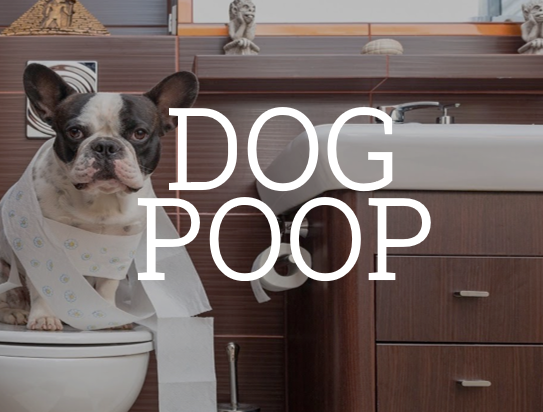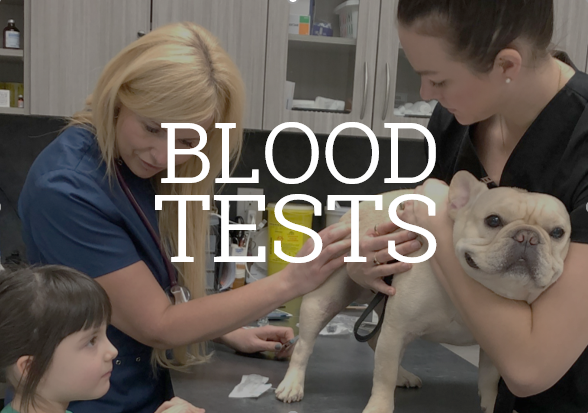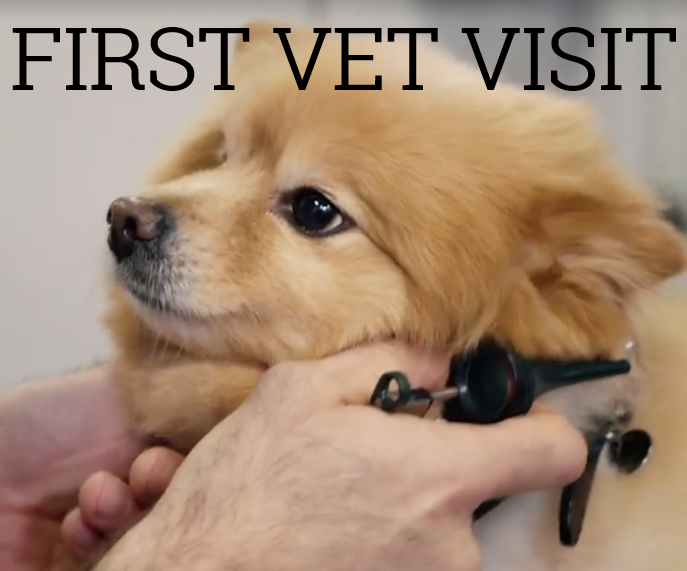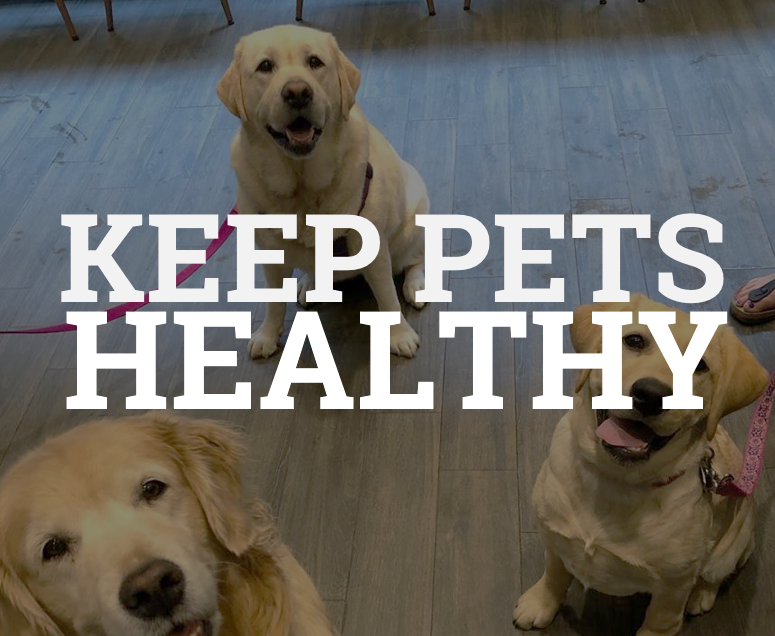It’s more than just cosmetics You may have seen our recent dental care promotion (book and complete a dental assessment and completion before February 15, 2020 and you could win tickets to the Raptors vs Bucks game on Feb 25th!) and thought, “Yeah, I should really try brushing my pet’s teeth more often – but it’s always such a pain in the neck! And it’s not like my pet eats sugar all the time – I mean, can his/her teeth really be that big of a deal?” Yes. The medical community has known for decades that oral health is crucial to good overall health for humans – after all, “…the mouth is the entry point to your digestive and respiratory tracts…”, and that means bacteria. There’s increasing research demonstrating that the same is true for animals, and our cats and dogs are no exception. As the AAHA pointed out in…
Pets need a little extra TLC in the summer months. In lots of ways, pets love summer as much as people do: More outdoor activities, more frequent (and probably longer) walks, and trips to exotic places like the cottage. But pets – and particularly dogs, who tend to spend more time outside – also face some dangers unique to summer. The ASPCA has listed the top 5 risks for pets in the summer: 1. Fireworks & thunderstorms. According to the ASPCA, loud noises like fireworks are one of the main reasons that pets go missing, especially in good weather. If you’re outside at a fireworks show, keep your pet on a leash; if you know your pet gets frightened by thunderstorms and the loud bangs of fireworks, try keeping them in their crate in a quiet area of your home. 2. Sun & heat. High summer temperatures and more time…
You may feel great when you stop eating grains. Your pet has different needs. In the past 10 years, the dog food marketplace has changed dramatically: According to the New York Times, almost half the dog food options on the shelf are grain-free. And many grain-free pet foods position themselves as being ‘healthier’, ‘more natural’, ‘higher in protein’ – making pet parents think they’re really doing their best for their animals when they switch them to these foods. However, last week, the FDA (the US Food & Drug Administration) issued an update on their investigation into grain-free pet foods, and the news continues to be the same: Grain-free diets are increasingly linked to dilated cardiomyopathy, or DCM. In dogs, DCM is a disease of the heart muscle, which leads to congestive heart failure. As this article in The Atlantic notes, the FDA’s studies are still preliminary, and their sample size is…
What is distemper? According to Toronto city officials, distemper in raccoons and skunks is currently a bigger problem than rabies in the GTA. The problem is that while most of us have heard of distemper, we actually don’t know how to recognize it, so in many cases, reports of ‘rabid’ animals are in fact animals with canine distemper. Canine distemper is a virus that affects an animal’s gastrointestinal, respiratory and central nervous systems, as well as the conjunctival membranes of the eye. It can take a few days from the first infection to the first symptoms, but in almost all cases the disease is fatal, and even the minority of dogs who do survive end up with permanent brain damage. Your vet will normally include distemper vaccinations as part of their normal vaccination schedule in your puppy’s first year – and it’s important. It’s rare for an animal with distemper…
Your dog can’t talk – but his body can If you’ve been a dog parent for any length of time, you know two things: One, that dogs will, sooner or later, put pretty much anything into their mouths, and this will, from time to time, cause them some gastrointestinal distress. Second, owning a dog means cleaning up poop – and gastrointestinal distress usually means more poop. In healthy dogs, most of the time, 24 hours of diarrhea isn’t a cause for concern, and you don’t immediately need to call your vet. Here’s what you can do at home: Make sure your dog has plenty of clean water to drink – and make sure you keep an eye on how much they’re drinking. The biggest immediate issue when a dog (or a person) has diarrhea is dehydration, so ensuring your dog is getting enough fluids is important. (Some dog parents…
The other day I was speaking to one of our long-term dog parents about her elderly cocker spaniel, who happens to be deaf, partially blind, and has glaucoma. “I know I was resistant to getting that blood work done a couple of months ago,” she told me. “But you know, I’m so glad I did. It’s given me such peace of mind. It makes such a big difference, knowing that she’s basically healthy for her age and that I’m not going to get surprised by some condition that went unnoticed for ages.” What are canine blood tests for? While there are a wide range of canine blood tests, a CBC (complete blood count) examines the white blood cells, red blood cells and platelets, including the health and functionality of those cells. As in blood tests for humans, this information gives your vet information about your dog’s immune system and…
How to make it more successful for everyone As a new puppy parent, you’ve probably been told how important it is that your new dog gets regular veterinary care. (You may even have had to sign papers promising this care.) But even the most committed dog owner can find those first few months tough: New puppies have to visit the vet every few weeks in their first 6 months, for everything from checkups to immunizations and boosters to parasite checks. However, one of the side benefits to all these early visits to the vet is that they allow your puppy to become accustomed to the sights, sounds and smells of the veterinary clinic, which will make it easier later on. The idea of having to carry or drag a full-grown Bernese into the vet’s office sounds funny – until you have to do it yourself. Your dog may never…
5 tips for ensuring your pet stays healthy without breaking the bank We know what people say: “I hate taking Spot to the vet – it’s a lot of money and sometimes I think they’re just trying to make me spend more money.” But remember: Vets have the same kind of medical training (and almost as much of it) as family doctors have. Their years in veterinary college involved anatomy, physiology, surgery and pharmacology – just like your family doctor. And 99% of them did it because they have a deep love for animals. If they’d really wanted just to ‘make money’, they’d have chosen a medical field that involved humans. However, we also know that when a pet gets sick, it can happen fast – and even modest bills can be a shock to the budget. So here are our tips for keeping vet bills low – while also…

